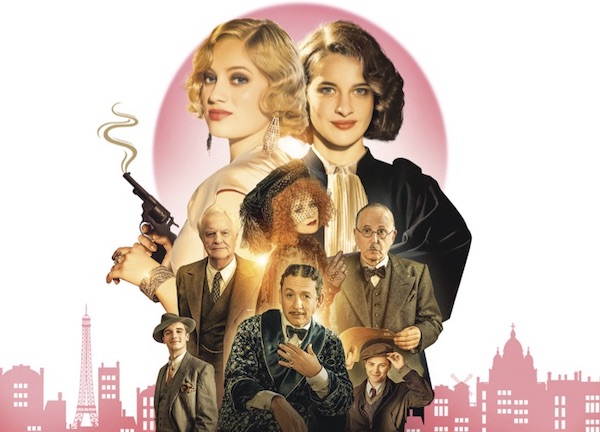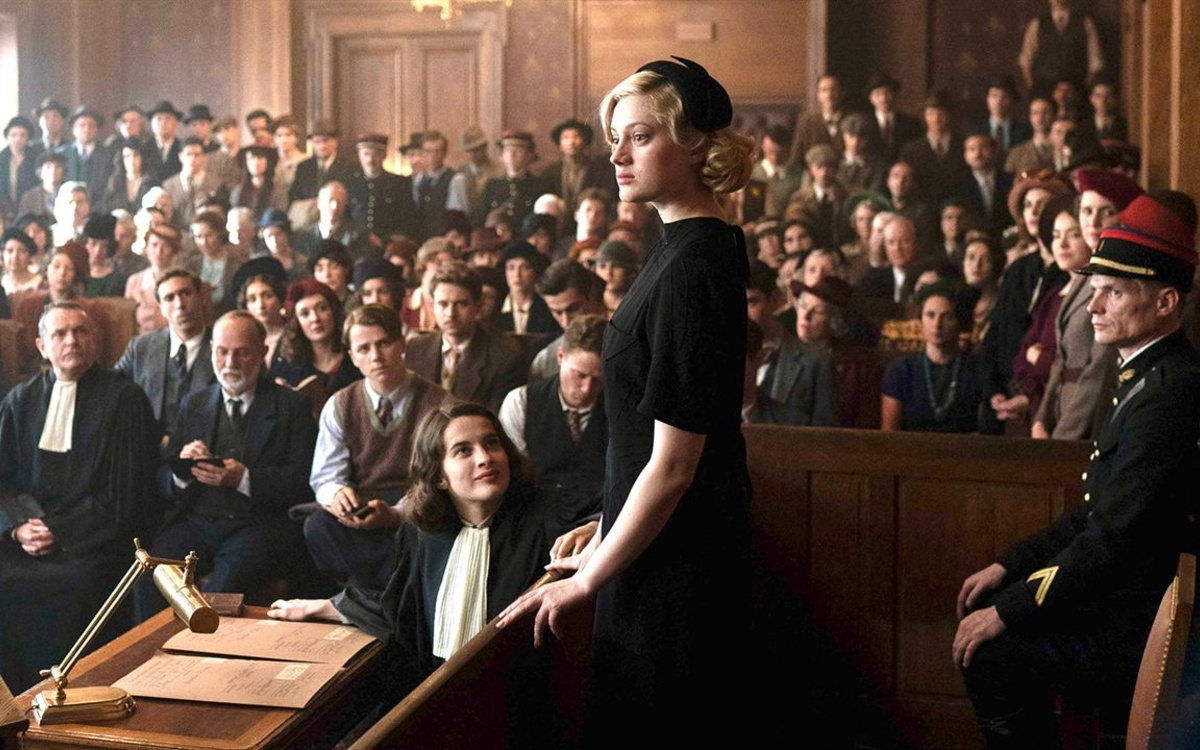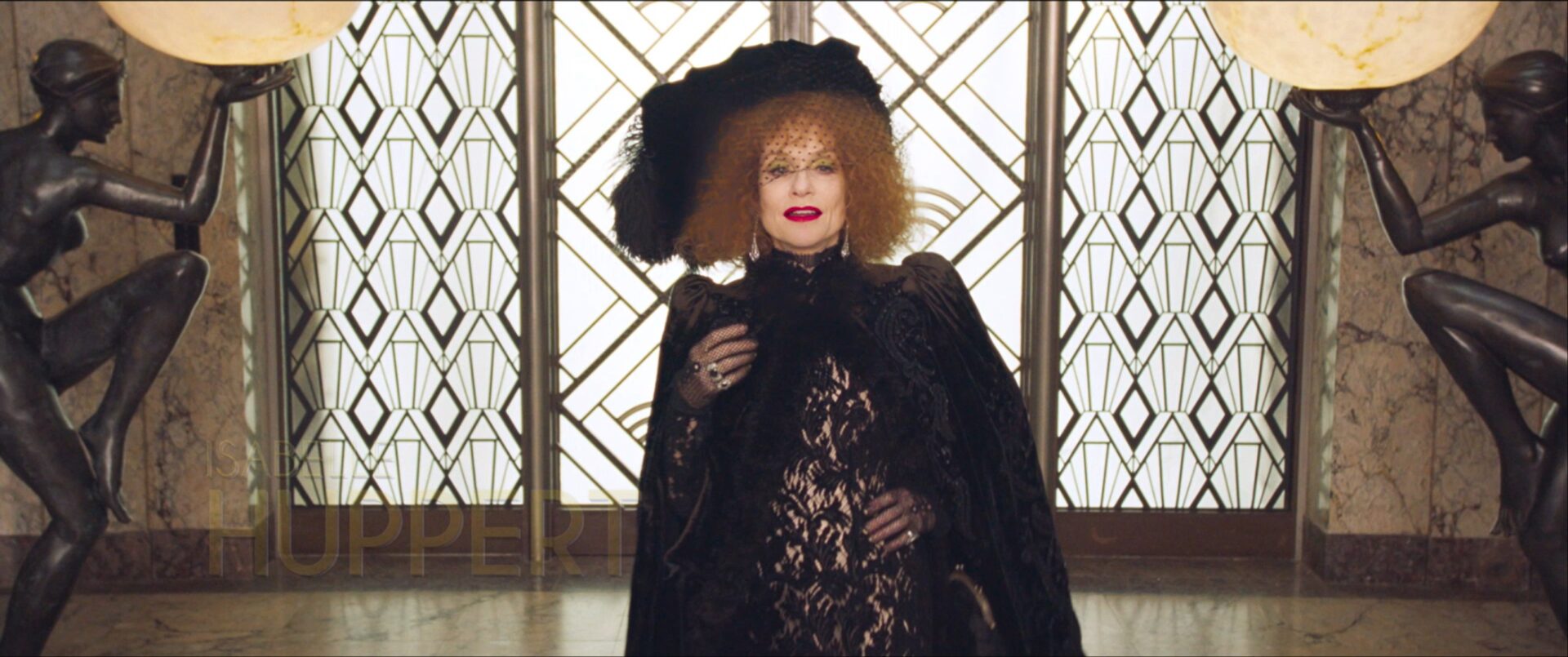
The eclectic French filmmaker, François Ozon, throughout his career has expressed with versatility, poetry and skill the art of moving pictures. The director whose work is associated with the nouvelle Nouvelle Vague (the new “New Wave”), has established his style by blending satirical badinage, freewheeling sexuality and aesthetic beauty. His films — such as 8 Women (2002), Swimming Pool (2003), Potiche (2010), Young & Beautiful (2013), Frantz (2016), By The Grace Of God (2019), and Summer of 85 (2020) to name a few — often are associated with the cinéma du corps, that uses the body as narrative device for physical encounters, embodied desire and social relationships that mingle with arthouse thrilling stories.
Just a year ago, Ozon presented at the 72nd Berlin Film Festival Peter von Kant, an ambitious and gender-flipped reinterpretation of Rainer Werner Fassbinder’s 1972 film The Bitter Tears of Petra von Kant. This year his latest oeuvre premiered at the Festival Premiers Plans d’Angers: Mon Crime (The Crime Is Mine).
The film focuses on two penniless young friends. The first, Madeleine (Nadia Tereszkiewicz), is accused of the murder of producer Montferrand (Jean-Christophe Bouvet), who tried to sexually harass her in exchange for a small role. The second, Pauline (Rebecca Marder), is her lawyer friend who defends her in court. A series of coincidences, along with the pressure of investigating judge Richter Gustave Rabusset (Fabrice Luchini), push the young girls to a specific line of conduct.

Mon Crime, takes a feminist stance to a trial set in 1935: Madeleine becomes the symbol of the oppression of women by men through a monologue written by Pauline. In fact, many male characters, besides Rabusset, will provide a wide spectrum of gender politics during this historical moment: Madeline’s sweetheart, André Bonnard (Édouard Sulpice), son of the owner of a large tire company who doesn’t work and initially hesitates in asking her to marry him, her future father-in-law Monsieur Bonnard (André Dussollier) and the bon vivant architect Palmarède (Dany Boon).
Acquitted, Madeleine becomes famous and inundated with proposals, just like Pauline. But Odette Chaumette (Isabelle Huppert), a silent film star whose success faltered since the arrival of talkies, claims she is the real killer and wants all the benefits that Madeleine gathered out of this circumstance. Meanwhile Madeline’s public gesture of empowerment inspires other women to take action. This social mobilisation culminates in a stupendously meta-theatrical representation that evokes François Truffaut’s The Last Metro.
Ozon’s picture is a loose adaptation of the 1934 play Mon crime by Georges Berr and Louis Verneuil, which has been adapted into two American films, True Confession (1937) and Cross My Heart (1946). The French filmmaker has also made several nods to Hollywood’s Golden Age, especially with references to American screwball comedies, where females would challenge masculinity. Ernst Lubitsch seems to be at the forefront of Ozon’s inspiration with films such as Trouble in Paradise (1932) and To Be or Not to Be (1942); but also Frank Capra with his It Happened One Night (1934).
Paris during the Thirties is a character per se. It was the epoch when the Mauvaise Graine (Bad Seed, the only French film by Billy Wilder) was shown at the cinema, a story about a good-for-nothing playboy who enjoys a hedonistic lifestyle thanks to his father’s immense wealth and ends up joining a gang of car thieves (who shares the same attitude of Madeline’s André). Whilst in real life one of the first cases of incest was appearing all over the French press: Violet Nozière in 1933 accused her father of having sexually abused her and, despite her extreme act in self-defence, she was convicted for his murder.
In The Crime Is Mine, female actresses lead the way with the young Nadia Tereszkiewicz (previously seen in Forever Young) and Rebecca Marder at the helm of the narrative, supported by the sublime Isabelle Huppert, whose character is roughly based on Sarah Bernhardt. The dizzying parade of misadventures is enriched by the interaction with France’s top-notch male actors: Fabrice Luchini, Dany Boon, Édouard Sulpice, André Dussollier, Jean-Christophe Bouvet. The traditions of stage comedy coalesce with the filmic craft, where François Ozon alternates black & white with colour, to resemble the interchange between conjecture and fact.

François Ozon demonstrates extraordinary sagacity by instilling a MeToo flair in an era in which French women still did not have the right to vote, nor could they have a bank account, or marry freely. With this premise, The Crime Is Mine brings to life the journey of different women who try to overcome social constraints through amoral choices but for a good cause. The outcome shows how sisterhood can also be cross-generational.
Mon crime is genuinely “about the triumph of sorority,” as François Ozon declared, who homages the tradition of Jean Renoir by bringing forth the idea of how life is a theatre. Ozon grasps the Poetic Realism typical of Renoir, who celebrated with lyricism the fatalistic perspective of characters living on the margins of society. Ozon brings this approach a step further by allowing his protagonists to gravitate in a realm where reality and fiction merge with burlesque, to ponder upon the role of women in society.
The witty dialogues provide a caustic touch to the exploration of the dynamics of power and the complicated status of women. The fight against patriarchy at the centre of the film emerges as it denounces the misogyny of society and the incompetence of justice. The court, thusly, becomes the stage to the performers that take part in this crime comedy. It is also a tribute to the profession of acting, where artifice becomes a compelling tool to tell the truth and question it. As Shakespeare once said in his play As You Like It — before describing The Seven Stages Of Man — “All the world’s a stage, And all the men and women merely players; They have their exits and their entrances, And one man in his time plays many parts.”
Final Grade: A

